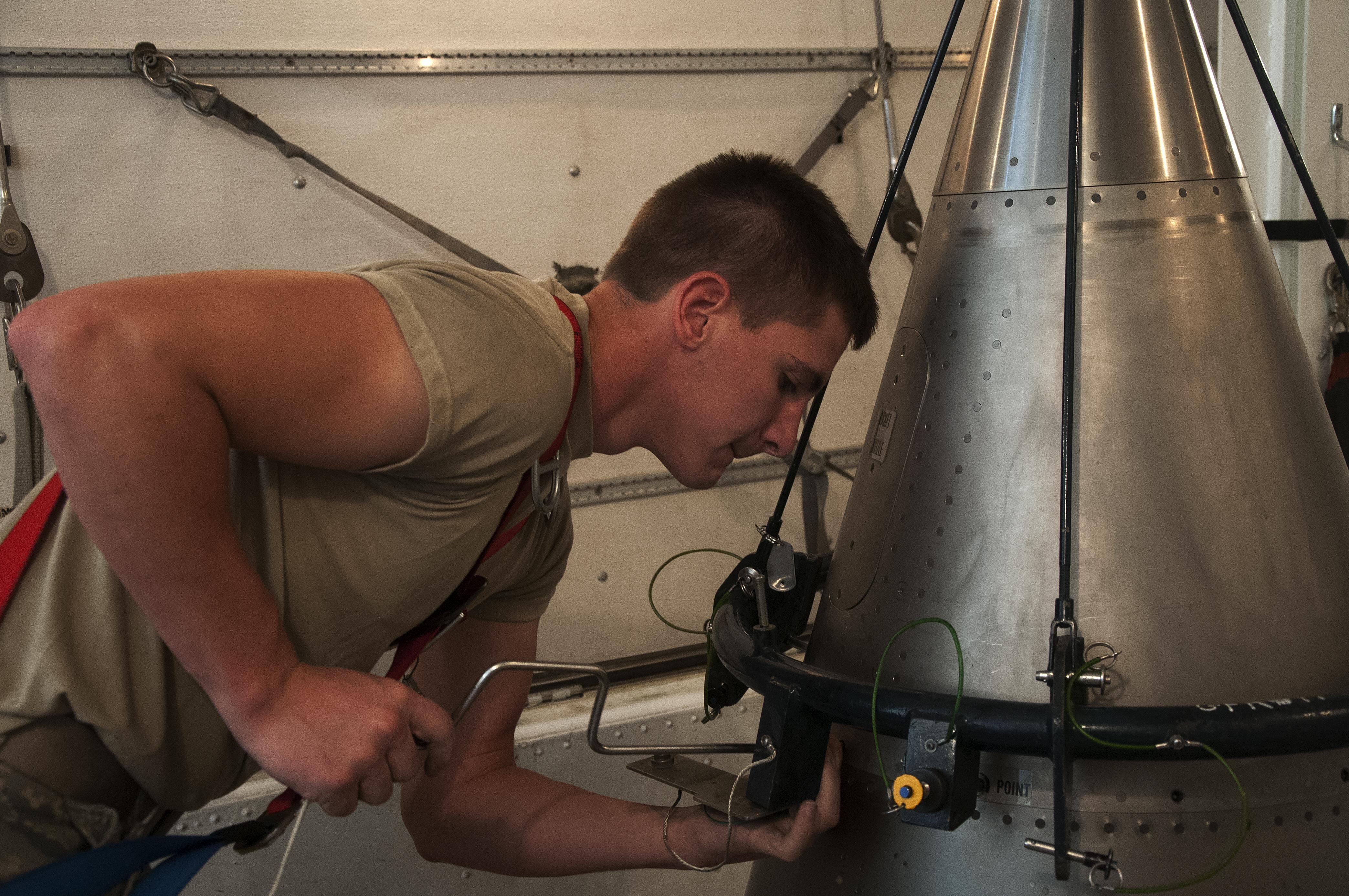WASHINGTON — Boeing has announced its withdrawal from the $85 billion Ground Based Strategic Deterrent competition, potentially leaving Northrop Grumman as the only contender vying to replace the Air Force’s Minuteman III intercontinental ballistic missiles.
“After numerous attempts to resolve concerns within the procurement process, Boeing has informed the Air Force that it will not bid Ground Based Strategic Deterrent (GBSD) Engineering and Manufacturing Development (EMD) under the current acquisition approach,” reads a Boeing statement. “We’ve evaluated these issues extensively, and determined that the current acquisition approach does not provide a level playing field for fair competition.”
RELATED

Boeing Defense CEO Leanne Caret detailed the company’s issues in a July 23 letter to Air Force acquisition executive Will Roper, which was obtained by Defense News and other outlets.
“Throughout the procurement process, Boeing has been transparent with the Air Force about its concerns with the competition,” she wrote. “The final RFP released on July 16 made only modest changes to the draft RFPs that had been previously released. As relevant to the concerns Boeing had raised, the final RFP extended the proposal submission deadline by 60 days, from 90 days after the RFP’s issuance to 150 days, and allowed offerors to submit ‘an alternative proposal in addition to their principal proposal,’ that could include ‘a single, combined proposal’ from both competitors."
But Caret said that those changes did not address Boeing’s primary concern: that Northrop Grumman would have an unfair advantage in the competition due to its recent acquisition of solid rocket motor manufacturer Orbital ATK, now known as Northrop Grumman Innovation Systems.
Neither Boeing nor Northrop announced selections for suppliers. NGIS is one of two U.S. manufacturers of solid rocket motors, alongside Aerojet Rocketdyne, but a Boeing source told Defense News that the company does not see Aerojet as a viable option as a sole supplier for the motors. Aerojet’s ultimate participation in the contract may depend on whether the Air Force hands down requirements to include both suppliers.
According to Caret, Northrop only recently — as of July 3 — signed off on an agreement that would firewall Boeing’s proprietary information from Northrop’s own GBSD team as Boeing negotiates with NGIS for solid rocket motors. Even though an agreement has now been reached, Caret contends that Boeing does not have enough time to negotiate a competitive price for the motors.
Caret said the current acquisition approach gives Northrop “inherently unfair cost, resource and integration advantages related to SRMs,” adding: “As I said in my July 8 letter, we lack confidence in the fairness of any procurement that does not correct this basic imbalance between competitors.”
Even the Air Force’s accommodation that would allow Northrop and Boeing to submit a joint bid “is not a workable solution to these issues,” she said.
“Because the final RFP does not address Northrop’s inherent advantage as a result of its control of SRMs, Northrop retains the ability to compete on unequal terms against either a Boeing or a joint ‘alternative’ proposal — and as a result, would not be incentivized to devote the significant resources required to develop such a proposal,” Caret said.
Additionally, Caret said it is “not realistic” to expect that Boeing and Northrop could develop a competitive joint bid in the five months before proposals are due, given that both companies have been working on their separate proposals for more than two years.
An Air Force spokeswoman declined to comment on the news, as the competition is currently in source selection.
Inside Defense broke the news of Boeing’s departure from the competition.
Boeing’s decision comes a week after the Air Force released its final request for proposals on July 16. A contract for the engineering, manufacturing and development phase is expected to be awarded by the end of 2020.
Lockheed Martin had previously competed for the contract, but was ousted in August 2017, when the service awarded technology maturation and risk reduction contacts to Boeing and Northrop.
It’s unclear how Boeing’s departure will affect the ultimate price of the GBSD program.
RELATED

In April, Gen. Timothy Ray, head of Air Force Global Strike Command, said he was counting on competition between Northrop and Boeing to help offset a near-term bump in cost expected as the Air Force makes investments in current infrastructure that will be reused for the GBSD system. Ultimately, that competition would help drive “billions” of dollars in savings over the lifespan of he weapon, he said.
“Between the acquisition and the deal that we have from a competitive environment, from our ability to drive sustainment, the value proposition that I’m looking at is a two-thirds reduction in the number of times we have to go and open the site. There’s a two-thirds reduction in the number of times we have to go and put convoys on the road.”
It would be unusual for the Air Force to move forward with this program with only one competitor, Byron Callan, an analyst with Capital Alpha Partners, noted in an email.
“One option would be for the Air Force to re-write the RFP to address some of Boeing’s concerns, which could delay the program,” he wrote. “The RFP had been seen by some analysts as favoring Northrop Grumman because the initial portion was cost-plus, but Boeing’s concerns suggest it’s worried about a strategic bid by Northrop Grumman.”
During an earnings call on Wednesday, Boeing CEO Dennis Muilenburg referred to the GBSD program a single time — to say that the company would leverage its development work on GBSD for future programs such as NASA Commercial Crew effort and next-generation space launch.
Valerie Insinna is Defense News' air warfare reporter. She previously worked the Navy/congressional beats for Defense Daily, which followed almost three years as a staff writer for National Defense Magazine. Prior to that, she worked as an editorial assistant for the Tokyo Shimbun’s Washington bureau.




